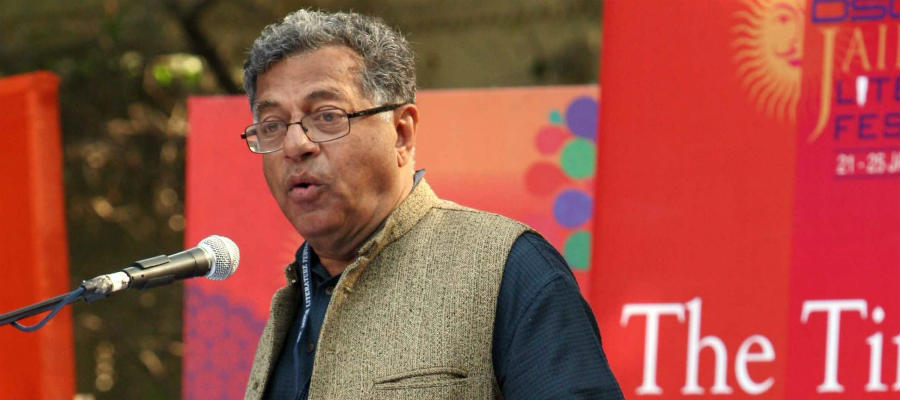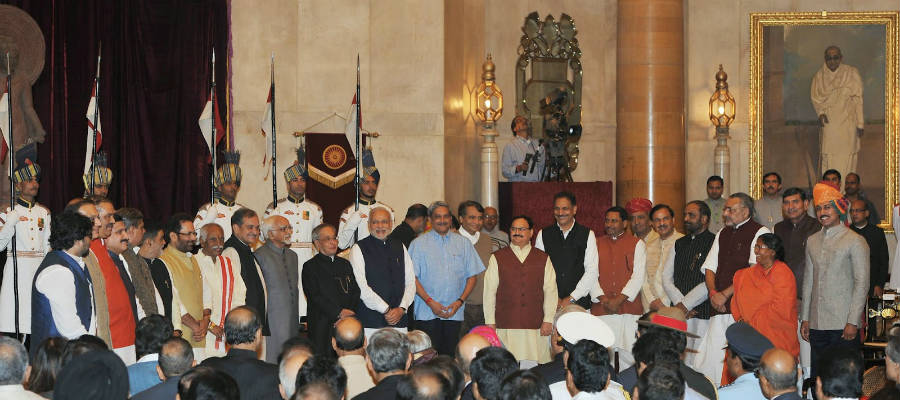BY BADRI RAINA
It is a great mystery to me why wolves should have been saddled with the ill repute of being sexual predators.
My experience of reading about animals and watching with commitment the many excellently researched documentaries about them on the chain of Discovery channels, including the National Geographic, teaches me this: that no animal, the wolf included, ever forces himself upon an unwilling or unready female of his species. Without a single exception.
The only animal that does so with nauseating insistence is the male of the human species. A clear black mark on the theory of evolution it seems.
Among other animals, you will have noticed a skein of honourable recognitions of mutual prowess stretching across gender. The lion knows he is not half the hunter that the lioness is, and thus rarely seek to impose his lugubrious incompetence when the hunt is on. And so on.
Men, fearing the knowledge that more women are, more often than not, more competent and resilient, and thus capable of taking their yard if given an inch, take recourse to that final brute instinct, namely, physical attack. This recourse to bestiality when everything else fails is meant to remind women that god meant them to be, after all, subservient to the muscular segment of the species, and to do their bidding in all things.
Bestiality I said; yet with apologies to non-human animals, it must be said that they make physical attack either for food, or in response to attack, or for the security of the brood, rarely if ever for sectarian dominance. It is as though god had made them more rational than us humans whose violence is almost always gratuitous and indefensible.
And the most rational aspect of non-human animal life must be that its sexuality is never anarchic or indiscriminately obsessive, or directed to ensure the psychological or political dominance of the male. It has a season and it has a purpose, namely the continuance of the species. And in that scheme of things, the male and the female are cognizant participants.
Thus, non-human animals, not excluding wolves, never rape. When the male animal is refused, he has the grace to desist and seek elsewhere, however crestfallen.
Rape thus is never a sexual act. Almost always, it is the confession of the male that he has no other way of overpowering the female into slavery, of keeping her out of the due of equality.
This infernally impotent rage that the essentially weak male invariably experiences in the presence of the female who has a mind — and, by inference, a body — of her own is of course sought, across all cultures of the world, to be legitimized by reference to scriptures that are taught to have divine sanction.
Except, of course, that, to the best of our dispassionate knowledge, those scriptures are, in the first place, products not of any revelatory incantations but of the considered conspiracies of men from the origins of the species.
Give me one single eye-witness account that there was a god who created Eve from Adam’s rib, or that the former first succumbed to the forbidden fruit; or that there was a god or a prophet who decreed that woman must at all times do man’s bidding, be it in the Manusmriti or the Koran. Yet, those interested accounts have been and continue to be relentlessly deployed to render male brutalities “understandable” and, when all is said and done, “excusable” to this day by well-heeled organizations of self-appointed arbiters of “right conduct.”
The battle against those sorts of constructions of “authorized” disequilibriums as between men and women may be said to have been largely won by women in the democratic parts of the western world. Wherever contrary trends are once again visible-red America for one-it is obvious that women in those parts today are willing political partners to such revisionist options rather than coerced collaborators to those dystopias. And anything that issues from voluntary exercises of choice need invoke nobody’s meddling.
However “elitist” the current outcry against rape in India may seem, its intellectual content and exponential possibilities clearly suggest that the good fight has been joined in a concerted manner for the first time. Remarkably, a whole new generation of young Indian males, increasingly wedded to the notion of individual choice in matters of all sorts of productive work and consumption, seem to have made up their minds to join with protesting young women on behalf of gender equality and the right to free exercise of choice.
It will remain to be seen whether or not this point of entry at the call of liberalism is sought to be extended beyond what may be its caste or class configuration to embrace those vast hordes of indigent women who suffer the ignominy and violence of male brutality day in and day out in city, town, district, taluka, village, and outlying shanty, away from recourse to any form of social or official redress.
Caveat: At this pregnant moment, we must also take note that many cabals on the right-wing of our cultural and political life are waiting and eager to press the present outcry into the service of discredited medievalisms. Where it may be their sinister object to use the event to push women back into the suffocating furnace of patriarchy, it must be our endeavour to seek such transformations as enhance women’s natural and constitutional rights to freedom and equality in personal and social life, obliging the state and communities to ensure that such be the case.
In conclusion I may be permitted to recall a few lines from what I had once written in a poem, titled “Our Share of the World”:
Here is what we say:
Recognize the altered night and day;
Men and women must together find
An honest will to put behind
A habitually distorted humankind.
It is much to be hoped that the time has arrived
(Badri Raina is a well-known commentator on politics, culture and society. The opinions expressed by the author and those providing comments are theirs alone, and do not reflect the opinions of Canary Trap or any employee thereof)

